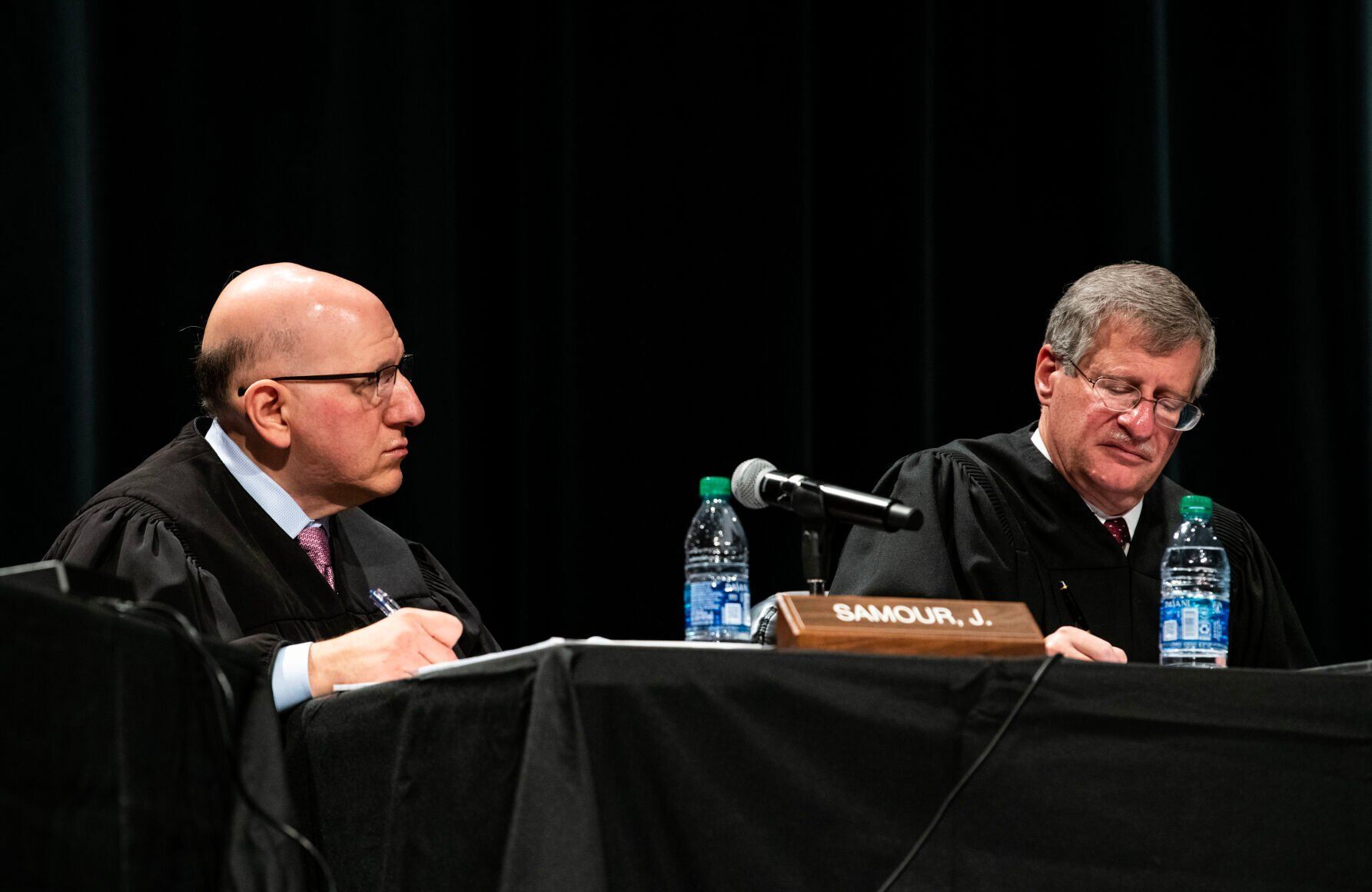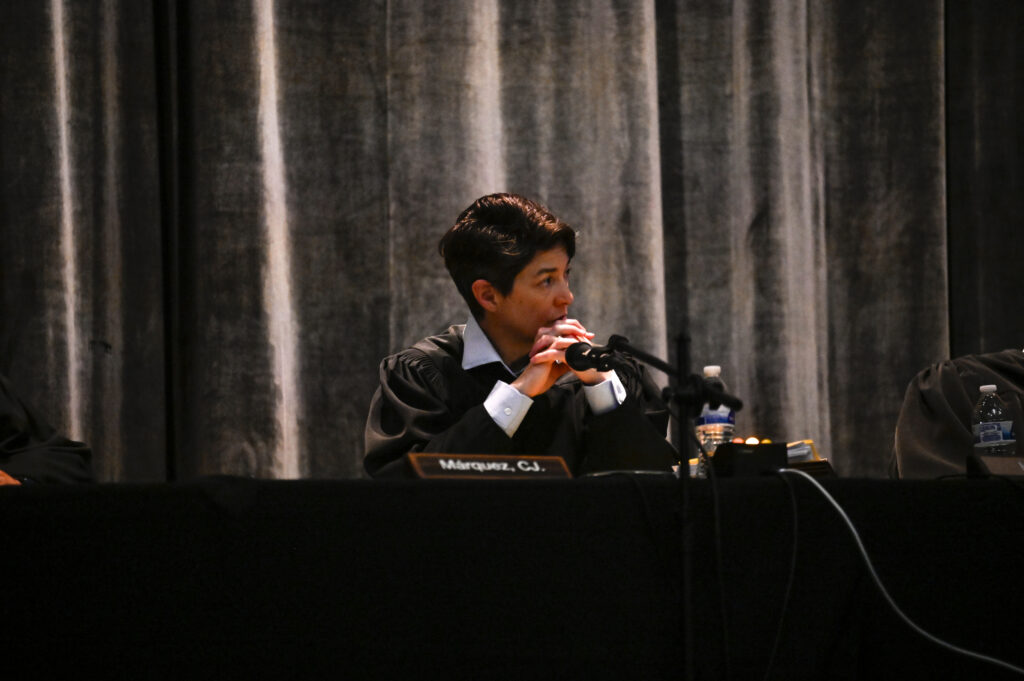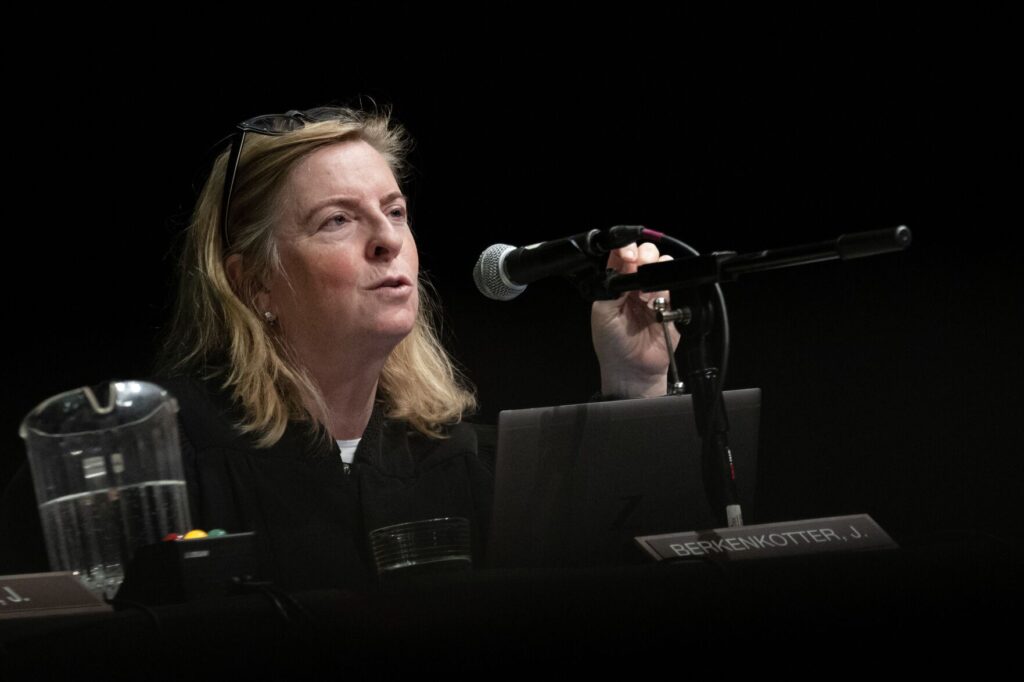Justices consider where to draw line on experts testifying about child witnesses’ honesty

Members of the Colorado Supreme Court considered last week how far an expert witness can go in suggesting to a jury that another witness is being truthful, which is generally forbidden.
Previously, the state’s Court of Appeals believed a defendant who “persistently” argues an adult influenced a child victim to lie has opened the door to an expert’s opinion that there were no signs of coaching.
During the Oct. 22 oral arguments to the Supreme Court, Justice Carlos A. Samour Jr. observed that jurors listening to a defendant’s theory about coaching would naturally want to hear an expert’s perspective.
“Given what else the expert has testified about, why isn’t it allowed for her to not directly talk about the veracity of the victim, but just to talk about whether she, in this case, had observed any of those indicators?” he wondered.
But if a professional is allowed to do that much, “it seems to me that every expert in every child sex assault case is gonna get up and say exactly that,” said Chief Justice Monica M. Marquez. “I’m a little bit nervous about what limitations exist.”

Gustavo Lopez stood trial in Boulder County in 2019 for multiple child sex assault-related charges against three victims who were relatives of his. Jurors found him guilty, and he received an indefinite prison sentence of at least 50 years.
There was no physical evidence of the crimes, and the victims’ stories had many inconsistencies. Jurors also heard that some of the children wanted to live with their grandmother, who did not like Lopez.
During the trial, the defense suggested that family members can “influence” children into believing “something that’s not true.” Lopez’s counsel also suggested the victims’ stories changed during the time spent with their grandmother.
Jurors heard testimony from Kim Grimm, a forensic interviewer who talked to two of the victims in recorded conversations. She described multiple tactics professionals use to discern if a child has been coached, including asking for details about their experience. At the end of Grimm’s testimony, the jury had a question for her: “In your expert opinion,” the question read, were the children’s behaviors “consistent with interviews where coaching was present?”
Over the defense’s objection, the trial judge allowed her to answer. Grimm said she did not “feel like I saw huge red flags with that or anything.”
On appeal, a three-judge panel for the Court of Appeals acknowledged witnesses may not testify about others’ truthfulness on specific occasions. However, wrote Judge Elizabeth L. Harris for herself and Judge Lino S. Lipinsky de Orlov, the defense had “opened the door” by arguing the victims were influenced by an adult.
Although Harris stressed the ruling was “narrow,” Judge Timothy J. Schutz dissented, believing the panel had itself opened the door to experts vouching for victims’ credibility in numerous sex abuse cases. While he noted the concept of opening the door was rooted in fairness, he wrote that it is a jury’s job to decide whether to believe a particular witness.
“In the typical case involving allegations of sex assault on a child, the defendant must either contest the veracity of the alleged victim or effectively confess,” Schutz wrote. “But the logical extension of a broad ‘opening the door’ rationale would permit an expert to opine whether the accusing witness was being truthful every time a defendant suggests that an accuser was coached.”
On appeal, Lopez’s attorney advocated for abolishing the opening-the-door doctrine or, in the alternative, deeming Grimm’s specific testimony problematic.
“That testimony puts a thumb on the scale of credibility in a way that’s unfair because (the jury) may well have resolved this differently and determined that they did see indications of coaching,” said public defender Meghan M. Morris. “Where the expert witness is providing that conclusion for the jury, it implies that she believed the children here.”
“How is it not fair game, though, when the defense argues strenuously there’s coaching?” asked Justice Richard L. Gabriel. “The defendant could say all this, and in your view, the (prosecution) would be precluded from responding.”
The government argued that Grimm did not “directly” opine about the victims’ truthfulness, but merely provided an “observation” about coaching for the jury to consider.
“What is it that goes too far then? ‘I believe the children were telling the truth’?” asked Justice Brian D. Boatright.
“The problem is the coaching itself relates directly to truthfulness,” added Márquez.
Justice Melissa Hart was not present for the arguments. A spokesperson for the judicial branch said Hart was attending to personal matters.













